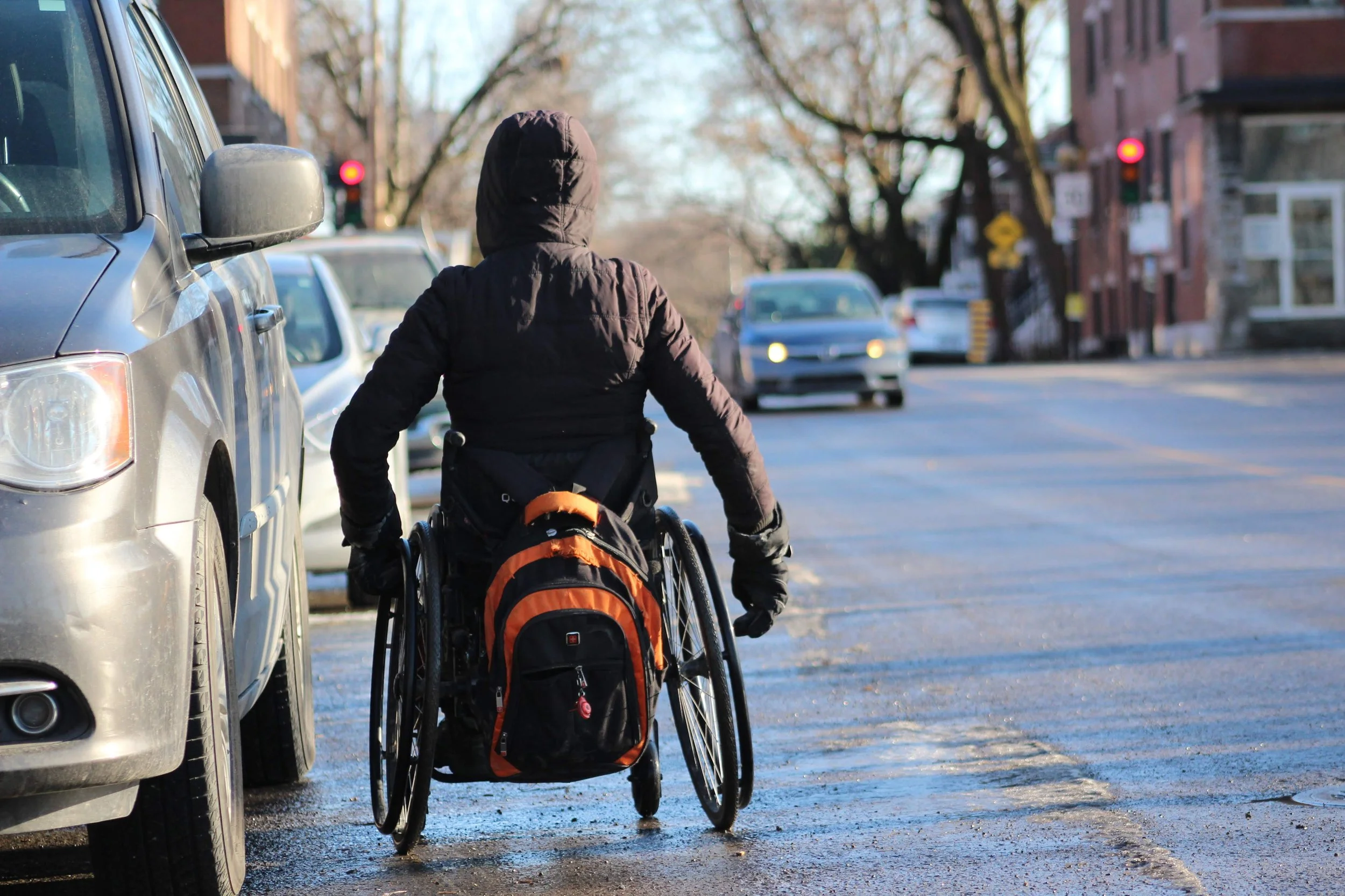Athens Disabilities Commission proposes ADA lawsuit if legislation demands are not met
Photo via: Miguel Angel Omaña Rojas/Public/Wikimedia Commons
Athens’ iconic red brick roads are a city staple. Students and residents cross them every day when traversing the city. They even named the rivalry between Ohio University and Miami University - the Battle of the Bricks - referring to two of Ohio’s oldest universities’ brick roads and buildings.
However, to some, the bricks are only one more obstacle to navigate when trying to get around Athens. For those with mobility disabilities, the bricks are another factor on a laundry list of accessibility issues the city has yet to fix.
The Americans with Disabilities Act of 1990 is a civil rights statute that prevents discrimination against people with disabilities. Since its passage, constructing inaccessible public facilities that are inaccessible is seen as an act of discrimination.
Title II of the Act mandates that all cities have a transition plan to increase their accessibility. The plan should outline current accessibility issues, how the city will fix them, a timeline for construction and the city officials responsible for the project.
As of 2024, Athens does not have a transition plan and has been non-ADA compliant for 34 years.
The lack of an ADA transition plan and maintenance, combined with other accessibility issues, makes Athens’ terrain difficult at best and outright dangerous at worst.
Chair of the Disabilities Commission Davey McNelly uses a powerchair and knows firsthand how dangerous Athens’ roads can be, especially when it comes to curb cuts, otherwise known as curb ramps. According to the Ohio Department of Transportation, the ADA requires curb ramp landings to have a slope of at least 1.56%.
According to McNelly, Athens’ curb ramps do not meet these specifications, and it can lead to accidents.
“It should have a smooth and continuous transition from the crosswalk up to the sidewalk. At the maximum, you can have ¼ of an inch. A lot, if not most of the curb cuts in uptown are an inch or higher, meaning that if you’re using a push wheelchair and push up to it, your wheels do not go over it…It’s a tripping hazard for people who use a cane…These curb cuts themselves are often cracked or missing.”
Athens’ accessibility issues do not stop at physical obstacles but extend to deeper systemic issues.
Secretary of the Disabilities Commission Dr. Allyson Hughes said she encountered difficulty trying to find affordable accessible housing in Athens, and ultimately had to leave the city.
“We were looking for a one story, single-family, ranch-style home that makes sense for us because of my husband’s mobility disability…That was pretty much impossible to find in Athens,” Hughes said.
Hughes said she and her husband only saw two houses that fit their needs, but one of them had a cracked foundation. After a year-long search, Hughes and her husband moved to Nelsonville, but there are still additional costs in making their home accessible.
“We had to find what made the most sense for us. We’ll be adding a ramp to the front of our house out of pocket very soon…We shouldn’t have to do that,” Hughes said.
Athens’ inaccessibility is by no means a new problem. The Disabilities Commission recently sent a letter to the city and City Council outlining legislation they want passed to work toward improving the city’s accessibility. The letter included a hard deadline of Nov. 1 to receive a response from the city. If nothing changes, the city could have a potential ADA lawsuit on their hands.
McNelly believes the lawsuit is a last resort and would rather turn to other tactics to make change.
“I don’t want to do this. I want the city to put the plan in place in the upcoming months,” McNelly said.
Athens Service-Safety Director Andy Stone thinks the lawsuit is counterproductive.
“It’s absurd to discuss the city suing itself…My decision is that they will actually be working against their purpose if they were to do that because the money that would go into paying attorneys to deal with a lawsuit could instead be going to doing improvements in the city.”
If one of the commission members were to step down to bring forth the lawsuit, the city’s insurance company would step in to defend the city.
As for other demands outlined in the letter, Stone says the city has projects in place to address, but that it is a matter of time until a contractor will bid on the projects.
“When you can’t get contractors to bid on your projects because there’s too much construction work out there, it’s difficult to get it completed.”
Stone expects rebidding to occur in February 2025, with construction set to begin in 2026.
Until the Nov. 1 deadline, no progress on the lawsuit has been announced to the public.

